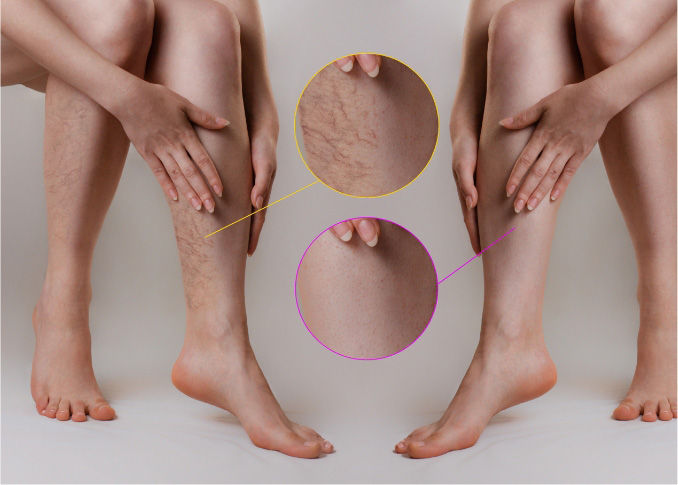What Is a Vein Doctor Called and When Should You See One?
Vein health plays a vital role in your overall well-being. Yet, many people ignore the early signs of vein problems, assuming they're cosmetic or harmless. But untreated vein conditions can worsen over time. That’s why knowing what a vein doctor is called and understanding the importance of vein treatment doctors can make a real difference in your health journey.
Understanding Vein Health
Your veins are responsible for carrying blood back to the heart. When this system doesn’t work properly, blood can pool, leading to conditions such as varicose veins, spider veins, or even deep vein thrombosis. If you're experiencing leg swelling, pain, or visible veins, it’s time to seek help.
This is where a vein doctor comes in.
What Is a Vein Doctor Called?
A vein doctor is typically referred to as a phlebologist. The word "phlebologist" comes from “phlebo,” which means vein. These doctors specialize in diagnosing and treating venous disorders. Some vein treatment doctors may also be vascular surgeons, interventional radiologists, or dermatologists with specialized training in vein care.
So, when you ask, "What is a vein doctor called?" — the short answer is phlebologist, but depending on their training and approach, they may hold other medical titles as well.

The Role of Vein Treatment Doctors
Vein treatment doctors are trained to evaluate, diagnose, and treat vein-related problems. Their expertise isn’t limited to just the visible surface veins. These specialists also detect underlying vein conditions using tools like ultrasound to understand how blood flows through your legs.
Services Provided by Vein Doctors
- Diagnosis of venous insufficiency or clots
- Minimally invasive procedures like sclerotherapy, laser therapy, and radiofrequency ablation
- Surgical treatments for more complex vein issues
- Preventive care and education to stop vein issues from returning
When Should You See a Vein Doctor?
You shouldn’t wait until your veins are bulging or painful. Early intervention helps avoid complications. You should consider seeing a vein treatment doctor if you notice:
- Swollen, heavy, or aching legs
- Itching or burning sensation around your veins
- Discoloration or hardening of the skin near your ankles
- Frequent leg cramps, especially at night
- Bulging, twisted veins (varicose veins)
The sooner you consult a specialist, the better your chances of managing the condition without invasive procedures.
Benefits of Seeing a Vein Treatment Doctor Early
1. Early Detection
One major advantage of understanding what is a vein doctor called is knowing who to contact before symptoms escalate. Phlebologists can catch vein issues before they become severe.
2. Minimally Invasive Options
Modern vein treatment doctors use cutting-edge technology to treat vein problems without surgery. Techniques like endovenous laser treatment (EVLT) and sclerotherapy offer quicker recovery and long-term results.
3. Improved Appearance and Confidence
Beyond health, treating varicose or spider veins can enhance your appearance and boost your self-esteem. Many patients report greater comfort wearing shorts, skirts, or swimsuits after treatment.
4. Pain Relief and Mobility
Vein issues can limit your mobility due to pain or swelling. Treatment often results in better circulation, reduced pain, and a more active lifestyle.
How to Choose the Right Vein Treatment Doctor
Not all vein doctors offer the same level of care. When selecting a specialist, look for:
- Board certification in vascular medicine or phlebology
- Experience treating a wide range of venous disorders
- Positive patient reviews and proven results
- Modern diagnostic tools and treatment techniques
You can start by searching online for local clinics or asking your primary care physician for a referral.
What to Expect at Your First Appointment
When you visit a vein doctor, they’ll typically start with a detailed medical history and physical examination. They may use a Doppler ultrasound to see how your blood flows through your veins. Based on your diagnosis, they’ll recommend the best course of treatment, which could include lifestyle changes, compression stockings, or in-office procedures.
Final Thoughts
Knowing what a vein doctor is called empowers you to take control of your vein health. A phlebologist or vein treatment doctor can help you address not just cosmetic concerns but also deeper health issues that may affect your quality of life. Don’t ignore the signs your body is sending. Early intervention by a qualified specialist can save you from future discomfort, complications, and even life-threatening conditions.
So, the next time you wonder, “What is a vein doctor called?” — remember, that expert might just be the key to restoring your comfort, mobility, and confidence.
Comments
Post a Comment